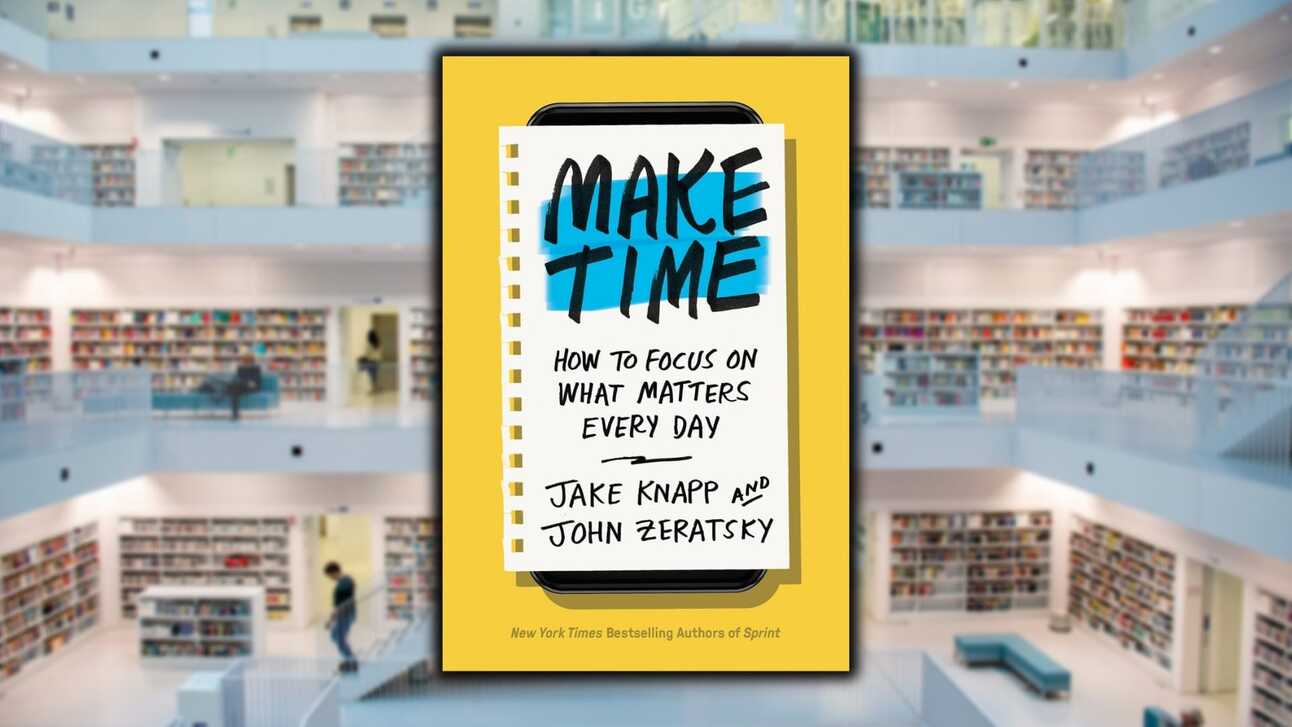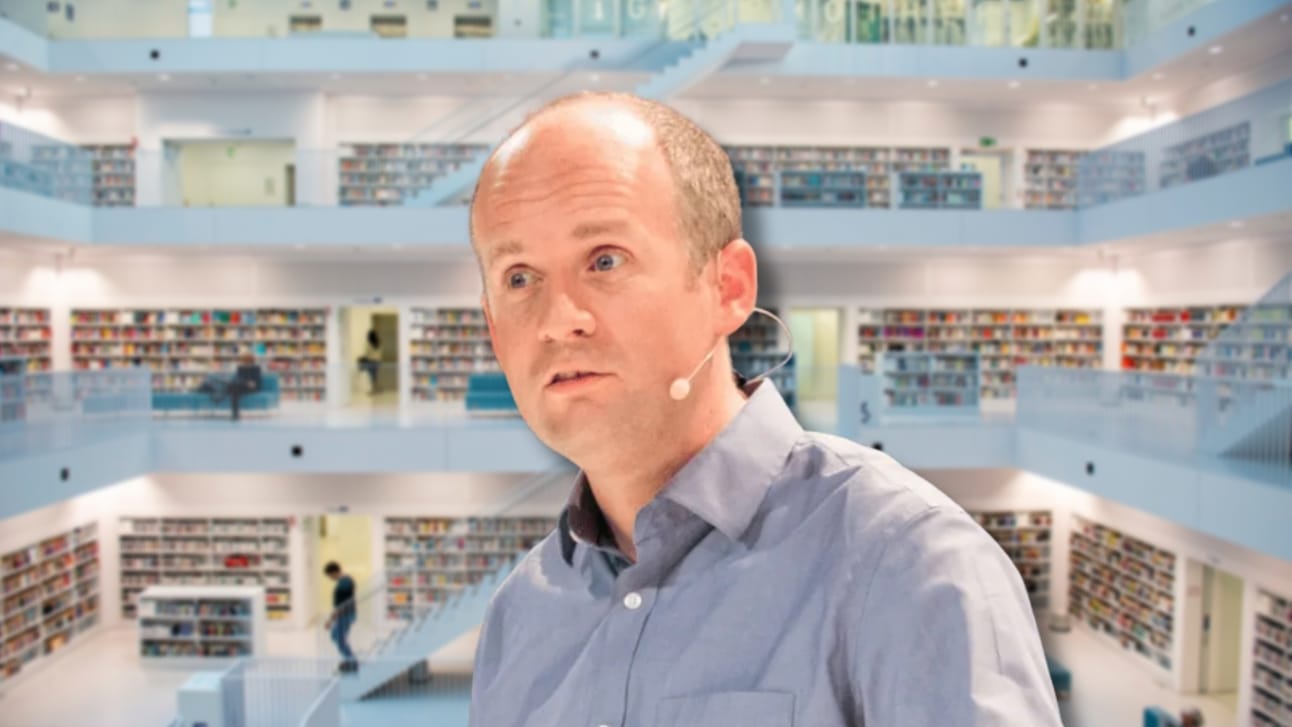“The average human lifespan is absurdly, terrifyingly, insultingly short.
Here’s one way of putting things in perspective: the first modern humans appeared on the plains of Africa at least 200,000 years ago, and scientists estimate that life, in some form, will persist for another 1.5 billion years or more, until the intensifying heat of the sun condemns the last organism to death. But you?
Assuming you live to be eighty, you’ll have had about four thousand weeks.”
“We’ve been granted the mental capacities to make almost infinitely ambitious plans, yet practically no time at all to put them into action.”
“I started pestering my friends, asking them to guess – off the top of their heads, without doing any mental arithmetic – how many weeks they thought the average person could expect to live. One named a number in the six figures.
Yet, as I felt obliged to inform her, a fairly modest six-figure number of weeks – 310,000 – is the approximate duration of all human civilization since the ancient Sumerians of Mesopotamia.
On almost any meaningful timescale, as the contemporary philosopher Thomas Nagel has written, ‘we will all be dead any minute.’”
“The most fundamental thing we fail to appreciate about the world, Heidegger asserts in his magnum opus, Being and Time, is how bafflingly astonishing it is that it’s there at all – the fact that there is anything rather than nothing.
Most philosophers and scientists spend their careers pondering the way things are: what sorts of things exist, where they come from, how they relate to each other, and so on. But we’ve forgotten to be amazed that things are in the first place – that ‘a world is worlding all around us,’ as Heidegger puts it.
This fact – the fact that there is being, to begin with – is ‘the brute reality on which all of us ought to be constantly stubbing our toes,’ in the splendid phrase of the writer Sarah Bakewell. But instead, it almost always passes us by.”
“I don’t want to live on forever in the hearts of my countrymen; I want to live on in my apartment.”
“Why assume that an infinite supply of time is the default, and mortality the outrageous violation?”
“So maybe it’s not that you’ve been cheated out of an unlimited supply of time; maybe it’s almost incomprehensibly miraculous to have been granted any time at all.”
“Each moment of decision becomes an opportunity to select from an enticing menu of possibilities, when you might easily never have been presented with the menu to begin with.”
“The real problem of time management today, though, isn’t that we’re bad at prioritizing the big rocks. It’s that there are too many rocks – and most of them are never making it anywhere near that jar.
The critical question isn’t how to differentiate between activities that matter and those that don’t, but what to do when far too many things feel at least somewhat important, and therefore arguably qualify as big rocks.”
“The only faculty you can use to see what’s happening to your attention is your attention, the very thing that’s already been commandeered.
This means that once the attention economy has rendered you sufficiently distracted, or annoyed, or on edge, it becomes easy to assume that this is just what life these days inevitably feels like. In T.S. Eliot’s words, we are ‘distracted from distraction by distraction.’
The unsettling possibility is that if you’re convinced that none of this is a problem for you – that social media hasn’t turned you into an angrier, less empathetic, more anxious, or more numbed-out version of yourself – that might be because it has. Your finite time has been appropriated, without your realizing anything’s amiss.”
“Do you want to know my secret? You see, I don’t mind what happens.”
“Once you can heat your dinner in the microwave in sixty seconds, it begins to seem genuinely realistic that you might be able to do so instantaneously, in zero seconds – and thus all the more maddeningly frustrating that you still have to wait an entire minute instead. (You’ll have noticed how frequently the office microwave still has seven or eight seconds left on the clock from the last person who used it, a precise record of the moment at which the impatience became too much for them to bear.)
Nor will it make much difference, unfortunately, if you personally manage to muster the inner serenity to avoid this kind of reaction, because you’ll still end up suffering from societal impatience – that is, from the wider culture’s rising expectations about how quickly things ought to happen.
Once most people believe that one ought to be able to answer forty emails in the space of an hour, your continued employment may become dependent on being able to do so, regardless of your feelings on the matter.”
“Choose uncomfortable enlargement over comfortable diminishment whenever you can.”
“Time is the substance I am made of. Time is a river that sweeps me along, but I am the river; it is a tiger which destroys me, but I am the tiger; it is a fire which consumes me, but I am the fire.”
In this book, Ali Abdaal, the world's most-followed productivity expert shows how the secret to world-class productivity isn't pain and suffering...it's joy.
Sample Quotes from the Book:
“With an experimental mindset, a date that doesn't lead to a second one or a friendship that doesn't blossom wouldn't be a failure; it'd just be another data point to help you understand your compatibility. No failure is ever just a failure. It's an invitation to try something new."
“Success doesn’t lead to feeling good. Feeling good leads to success.”
“You need to remind yourself of this big 'why' every day and every hour. Every email you send, every meeting you hold, every chat over a coffee - in ways small and large, they should take you a little closer to realizing that ultimate purpose."
Read the Full Breakdown: Feel-Good Productivity, by Ali Abdaal
Against all the forces conspiring to steal your focus and attention, this book provides 87 strategies you can use to fight back. Not only that, but you'll also learn a 4-step strategy for reclaiming your time and energy so you can direct it toward what really matters.
Sample Quotes from the Book:
“The first step is choosing a single highlight to prioritize in your day. Next, you'll employ specific tactics to stay laser-focused on that highlight. Throughout the day, you'll build energy so you can stay in control of your time and attention. Finally, you'll reflect on the day with a few simple notes."
“When you schedule something, you're making a commitment to yourself, sending yourself a tiny message that says: 'I'm going to do this.'"
“Working till exhaustion makes us more likely to fall behind by robbing us of the rest we need to prioritize and do our best work. Trying to cram in just one more thing is like driving a car that is running out of gas: No matter how long you keep your foot on the accelerator, if the tank is empty, you aren't going anywhere."
Read the Full Breakdown: Make Time, by Jake Knapp and John Zeratsky
In this book, the eccentric entrepreneur Dan S. Kennedy shares the extreme time management strategies he uses personally to run his multimillion-dollar company while successfully safeguarding his schedule and his sanity.
Sample Quotes from the Book:
“There’s a reason why you can’t find a wall clock in a casino to save your life - those folks stealing your money do not want you to be aware of the passing of time.
And that tells you something useful right there: you want to be very aware, all the time, of the passing of time. It is to your advantage to be very conscious of the passage and usage of minutes and hours.”
“Just as the person who cannot tell you where his money goes is forever destined to be poor, the person who cannot tell you where his time goes is forever destined to be unproductive - and, often, poor.”
“It is very important that you have a CLOSED Door Policy. You need some times when everybody knows - because of the closed door, red light, stuffed purple dragon in the hallway, whatever - that you are 100% uninterruptable. And if you want to sit in there and take a nap, you go right ahead. It’s none of their damned business.”
Read the Full Breakdown: No B.S. Time Management for Entrepreneurs, by Dan S. Kennedy
The quality of your questions determines the quality of your life. That's also how you get the absolute most out of any book that you decide to read:
You ask great questions the whole time - as though the book was on trial for its life.
Here in this section are a few questions that can help guide and stimulate your thinking, but try to come up with your own additional questions, especially if you decide to read this book the whole way through...
#1: “Assuming the average person has around four thousand weeks to live, how many weeks do you have left?”
#2: “What are your top three biggest regrets about how you’ve spent the weeks of your life so far? How can you prevent falling victim to similar regrets in the future?”
#3: “Does this next choice you’re about to make enlarge you? Or diminish you?”
#4: “Where in your life or your work are you currently pursuing comfort, when what’s called for is a little discomfort?”
#5: "Where in your life are you trying to be too efficient? Where are you optimizing for things that don’t even matter at all?”
#6: "What would you be able to give up that would immediately help you to become lighter and freer? Why haven’t you given it up already? Can you give it up now?”
#7: “Is there an area of your life where instituting some limits would allow you to experience an even greater, healthier, and more meaningful freedom later on?”
#8: "Do your choices feel meaningful at the moment you’re making them? Do you feel at least somewhat responsible for the future direction of your life, or do you feel as though the majority of your choices have already been made for you?”
#9: "In the context of our cosmic insignificance, do you feel small and powerless? Or do you still feel big and powerful? Is it possible for both viewpoints to be true simultaneously?”
#10: "During the most meaningful, memorable moments of your life, where were you? What were you doing? Who were you with? Could you recreate at least small-scale versions of moments like those on a daily basis? Can you start today? Now?”
"Judge a man by his questions, rather than by his answers."
So you've finished reading. What do you do now?
Reading for pleasure is great, and I wholeheartedly support it. However, I am intensely practical when I'm reading for a particular purpose. I want a result. I want to take what I've learned and apply it to my one and only life to make it better!
Because that's really what the Great Books all say. They all say: "You must change your life!" So here, below, are some suggestions for how you can apply the wisdom found in this breakdown to improve your actual life.
Please commit to taking massive action on this immediately! Acting on what you've learned here today will also help you solidify it in your long-term memory. So there's a double benefit! Let's begin...
#1: Give Up
Surrender can be an active process. Giving up has no relation to failure when the purpose behind it is to gain your freedom; you're not accepting defeat, but rather you're realizing that you're never going to get everything done, you're killing yourself trying, and that that way can only lead to unnecessary anguish and a diminished quality of life.
So give up your unrealistic expectations; give up the idea of making everyone happy; give up the pursuit of perfection and the relentless striving. Perform actions with excellence and care, but, as much as possible, do these things for their own sake, giving up the idea that you need to "earn" your place on this planet.
#2: Calculate the Number of Weeks You've Already Been Alive
Some people take this even further and print off an honest-to-goodness chart with boxes representing how many weeks they expect to live, and with the boxes representing the weeks they've already lived shaded in.
This is...excessive maybe? But I'm not against it! Having these things laid out in an unmissable, clearly visible manner can go a long way towards making these ideas intensely real: your weeks will, eventually, unavoidably, run out.
You don't have to write this down anywhere, but simply take your current age and multiply it by...you guessed it...52. Someone who has just turned 25 years old will have been alive for 1,300 weeks. If you're 85? 4,420. I just did a rough calculation myself, and it turns out that I've been alive for about 1,600 weeks! Now I'm going to sit with this number for a few minutes and see how I feel about it.
#3: Track How You Spend Your Time for 1 Week
The best way to manage your time (to the extent that that can be done) is to track how you're spending your time now. The same goes for your finances; if you don't have a budget, you have no idea what you're spending and where, and you're likely to have some "month" left over at the end of your money!
So pick any average week, and during the day, set a timer to go off every hour or so. Or every fifteen minutes, depending on how crazy you are (see #2, above). Then, when the timer goes off, take a few moments and write down how you spent your time since the last timer went off.
At the end of the week, when you have the data laid out in front of you, you can make intelligent choices about where to adjust your schedule and where you want to be spending more/less of your time. I've done this many times myself and the results are always instructive.
#4: Schedule Something Vitally Important
If something's important to you, you have to schedule it first, and then schedule everything else around it. We all have things that we'd love to do but never seem to have time for, and the partial solution to this is to make time for it. Plan it out, stick to your plan, and take action to make it happen in reality.
This could be something in your own hometown, and/or with friends or family of yours, or it could be that trip to Machu Picchu that you've always been dreaming about. Whatever it is, pick a date and make it happen.
If it's travel that's going to be a little more expensive, pick a date further into the future, but just know that you can buy a plane ticket for pretty much anywhere in the world for less than $2,000, and usually much less than that depending on where you live. That's less than $6 a day, and you can buy a ticket in just one year.
Again, just like Burkeman says, don't turn travel into a to-do list, but if it's going to happen, it's gotta be on your schedule.
#5: Make a "Never Do" List
You're never going to watch every movie, read every book, catch every sunset; you're never going to have as much time with your friends and family as you'd like, and you're never going to run out of experiences you could have that would make your life as thrilling and magical as it could be.
Even if you could just do these things all day every day - never mind work, traffic, showering, and all that - you're going to run out of weeks before you run out of to-dos. You know this already. But it helps immensely to have a "never do" list and/or a "stop doing" list.
These are pretty self-explanatory but their power is immense: simply make a list of things you absolutely, positively, never have time for, will never have an interest in, will never even think about trying to cram into your precious day.
I'm talking: words and actions that diminish you, gossip and cruelty, TV shows that are "just okay," friends who aren't really your friends - I'm sure you could add quite a bit to this list. So go ahead! And once you're done, keep this list where you can refer to it often, and if something comes up that's on your "no way in hell" list, don't do it!
#6: Start an "Attention Diet"
What you pay attention to becomes your life. Your life is the sum total of every single thing that you've ever paid attention to, added up together; if you weren't paying attention, it's like it never happened.
Knowing this - knowing that you give your own life meaning based on what you choose to pay attention to - you can make intelligent choices about where to direct your attention and from where to withdraw your attention.
For most people, myself included sometimes, we give our attention away (one of our most valuable, non-renewable resources) to anything and anyone that demands it. We give our very lives away like it was nothing.
So, using your time-tracking sheet from #3 above, identify those times where you gave your attention to something or someone and then immediately regretted it. Gradually, what you'll do over the next few days and weeks is to withdraw your attention from those people and things. Treat it like a diet, removing those things from your life and going without.
Unlike a regular diet, which is rarely all that fun, you're going to notice your life - and clarity of mind - improve pretty much immediately. And also unlike a regular diet, you can keep an attention diet going for years and years.
#7: Make Choices That Enlarge You
Much of the wisdom in Four Thousand Weeks comes from the focus placed on the fact that we can either make choices that enlarge us or diminish us. Those are pretty much our only options - every choice we ever make falls into one of those two camps.
We can choose not to steal, even if we know that we'll never be caught. We can choose not to cheat, even if there's zero chance that we'll ever be found out. We can honor the best in us and bring it to life in the world through our actions and our words.
This is one of the highest responsibilities of the authentically free individual: to make the world better, incrementally, little by little, with everything we say and do.
You know when you're acting from your highest or lowest self. You know when you're making a choice that makes you bigger - you can feel it. And so, guided by this feeling and this knowledge, you can refuse to contribute to the cause of those who are making the world worse. Every free action can be guided by the impulse to make life better, for all of us; I can't think of any better use of anyone's four thousand weeks.
"The path to success is to take massive, determined action.”
Oliver Burkeman worked for many years at The Guardian, where he wrote a popular weekly column on psychology, “This Column Will Change Your Life.”
His books include the New York Times bestseller Four Thousand Weeks: Time Management for Mortals, Meditations for Mortals: Four Weeks to Embrace Your Limitations and Make Time for What Counts, and The Antidote: Happiness for People Who Can’t Stand Positive Thinking. He was also shortlisted for the Orwell Prize in 2006.
Twice monthly he publishes The Imperfectionist, an email on productivity, mortality, the power of limits, and building a meaningful life in an age of bewilderment.
Additional Resources:
This Book on Amazon:
If You Liked This Book:
Forward this to a friend you think would love this book!
If you were sent this breakdown, click here to subscribe.
To read past editions of The Reading Life, click here.
Click here to recommend The Reading Life on Twitter (X).
OK, that’s it for now…
More excellent book recommendations coming your way soon!
With that said, I hope you enjoyed this edition of The Reading Life, and enjoy the rest of your week!
Until next time…happy reading!
All the best,
Matt Karamazov
P.S. Whenever you're ready, here are three more ways I can help you:
Work with me personally to scale your business past $5K per month and experience the intoxicating freedom of finally being in control of both your time and your income. High-performers only.
Become a Premium Member of The Reading Life and enjoy unlimited access to 150+ Premium Book Breakdowns, my complete notes from 1,300+ books, exclusive discounts, monthly donations made on your behalf to an incredible literacy charity, and more!
Join Creator Launch Academy, my private business mastermind for creators looking to add at least $1,000/month to their revenue and save at least 20+ hours of productive time each and every week.

















